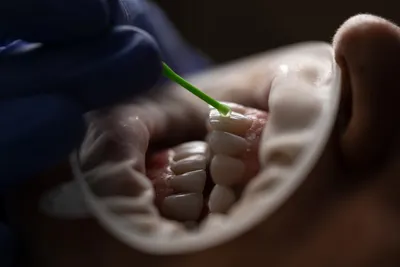
What is Tooth Sensitivity?
Tooth sensitivity, also known as dentin hypersensitivity, is a common dental issue experienced by many individuals. It is characterized by sharp pain or discomfort when teeth are exposed to hot, cold, sweet, or acidic foods and drinks. Tooth sensitivity can significantly affect your quality of life, making it essential to understand its causes and solutions.
Causes of Tooth Sensitivity
Tooth sensitivity occurs when the protective enamel on the teeth becomes worn down or when gums recede, exposing the underlying dentin. Common causes include:
- Brushing too hard: Vigorous brushing can wear down enamel and cause gum recession.
- Gingivitis or gum disease: Receding gums due to disease expose the tooth roots.
- Tooth decay: Cavities or tooth damage may lead to increased sensitivity.
- Teeth grinding: Bruxism can wear away enamel over time.
- Use of acidic foods and drinks: Frequent consumption can erode protective layers.
Managing Tooth Sensitivity
Thankfully, there are several effective strategies to manage and reduce tooth sensitivity:
Use Desensitizing Toothpaste
Switch to toothpaste specifically designed for sensitive teeth. These products contain compounds that help block sensation from reaching the nerve of the tooth.
Consider Dental Treatments
If toothpaste and home remedies are insufficient, dental treatments can offer relief. Options include fluoride varnishes or gel treatments, bonding agents that seal dentin, or even a protective layer applied to exposed roots.
Change Your Brushing Habits
Use a soft-bristled toothbrush and brush gently to protect your enamel. Consider using a fluoride rinse as part of your daily routine as well.
Watch Your Diet
Avoid acidic foods and beverages that can exacerbate sensitivity. After consuming such items, rinse your mouth with water to help neutralize acids.
When to See a Dentist
If sensitivity persists despite home care measures, it’s important to consult your dentist. Prolonged sensitivity can often be a sign of more serious issues like deep decay or gum disease that need professional treatment.
By understanding and implementing the correct preventive and management strategies, you can alleviate tooth sensitivity and maintain a healthy and comfortable smile.
Top Adult Health Articles
Check out the most popular articles among our readers, featuring trusted advice and actionable insights on adult health.



Related Posts
View All
Mastering the Art of Mindful Eating


